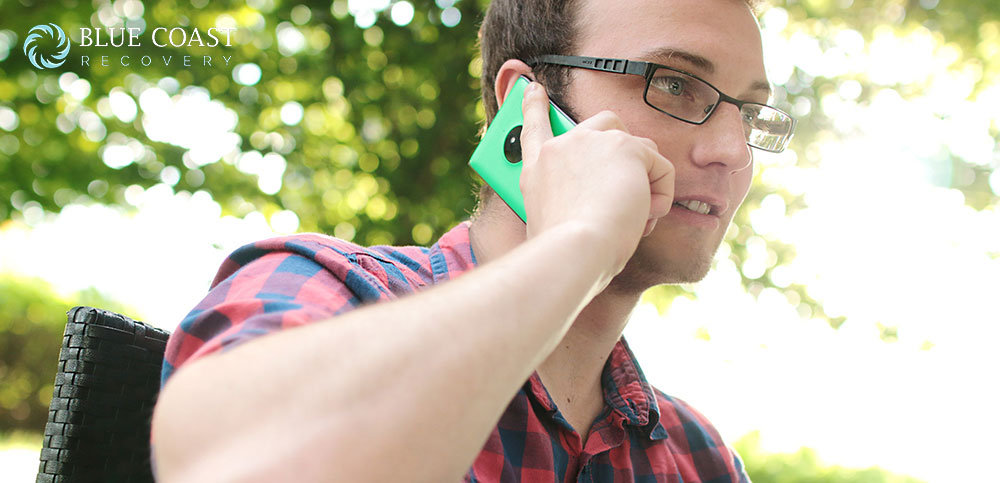In today’s world, all it takes is a quick Yelp search to find the answer to virtually any question you have about a business. Does this restaurant have vegan options? Can I bring my dog to this cafe? Does the barber down the street take walk-ins? How is the customer service at this new nail salon? All answers, reviews, and ratings are right there at your fingertips.
The same isn’t true of addiction treatment facilities. It can be incredibly stressful for people looking for treatment. Not only are they dealing with an insidious, potentially fatal disease, but they also likely don’t know what they should even be looking for. Help? Yes. But what does that mean exactly? What program questions are most important?



While treatment should be individualized and will definitely vary on a range of factors (location, patient, accreditation, etc.), it can be beneficial to get an idea of the kind of information you should be seeking when looking for treatment.
What Program Questions Should I Ask?
“What is the staff-to-client ratio?”
It’s important to get a good understanding of how big a treatment facility is beyond just the number of clients it can take at one time. Asking about the staff-to-client ratio not only gives you an idea of the size of the facility, but it also informs on the type of care a patient might receive. If the facility has a high staff-to-client ratio, the staff is better able to give more attention to each client. They’re not spread as thin.
“Are you a dual diagnosis facility?”
Dual diagnosis is a term used to describe when someone experiences both a substance use disorder and a mental illness. This is also referred to as “co-occurring disorders.” Dual diagnosis affects almost 8 million people in the U.S. alone. However, the scope and severity of these illnesses vary widely. If you or your loved one’s substance addiction is accompanied by depression, anxiety, bipolar disorder, or another mental illness, it’s very important to find a program equipped to address both for a successful recovery.
“Is your facility accredited? If so, by which organization(s)?”
There are a few accreditations health care facilities should strive for to show that they provide the highest level of care. For example, accreditation by The Joint Commission. The accreditation means that the facility voluntarily went through an extensive evaluation to make sure all staff go above and beyond in areas such as safety, diagnosis and treatment, and patient rights.
“What are the credentials of the staff?”
Just like the clients they interact with, a treatment program’s staff can come from all walks of life. Some staff may have a Psy.D. degree while others may be registered counselors or even interns. In general, you’ll want each client’s primary counselor to be licensed/certified. It’s also good to see that most staff members who lead groups are licensed as well, as groups are where a large amount of recovery work occurs.
Keep in mind that there are exceptions when it comes to something as nuanced as an individual’s service style. You can find great care from a variety of training levels.
“If the facility has a detox program, does it provide Medication-Assisted Treatment?”
Medication-Assisted Treatment (MAT) is a form of detox that combines FDA-approved medications with behavioral therapies. It is used to treat certain addictions, such as opiate addiction and alcoholism. These substances can create a physical dependency, in which withdrawal can be fatal. So, medications like buprenorphine or naltrexone are used to ease withdrawal symptoms and manage a patient’s cravings.
If the facility provides MAT, you should ask program questions about their specific protocol. For example:
- When will a patient be assessed by a doctor?
- How often are vitals monitored?
- What is the protocol for determining need and prescribing detox medications?
- What medications does your facility prescribe?
- Is there 24/7 medical supervision?
What type of extended care is offered?”
Addiction treatment is not a simple one-and-done fix. Recovery needs to be maintained for the long term. Some treatment facilities only offer detox. Some offer detox and residential. Others offer residential but no detox. And then there’s outpatient programs and sober living. You’ll want to get a good understanding of what aftercare looks like when you or you loved one has completed detox and/or residential programs. If the facility does not offer an outpatient program, perhaps they are affiliated with an external program that they can refer a patient to.
You can also ask about how the facility handles follow-ups and relapse. On that same note, inquire about the facility’s alumni program. Fellowship is incredibly important beyond the inpatient program. In many cases, whether or not a facility has a strong alumni program can say a lot about that program.
Additional Talking Points
As mentioned earlier, these are just a few program questions to get you started. Each individual is different and treatment varies as such. There may be quite a few additional features that are important to you when looking for a treatment program. You may be interested in the levels of family support, recreational activities, or job placement assistance.
It may be frustrating that there isn’t some instant Yelp-like service to purge all the ins-and-outs of each treatment facility, especially when it’s your first time looking into treatment. But this also gives you a great opportunity to take a few minutes to speak on the phone with admissions staff, ask specific program questions, and get a personal feel for the place where you or your loved one might just turn your life around!
If you or a loved one are struggling with substance abuse, our addiction specialists are available 24/7 to help: 855-997-4702*
*all calls are answered and operated by New Start Recovery




